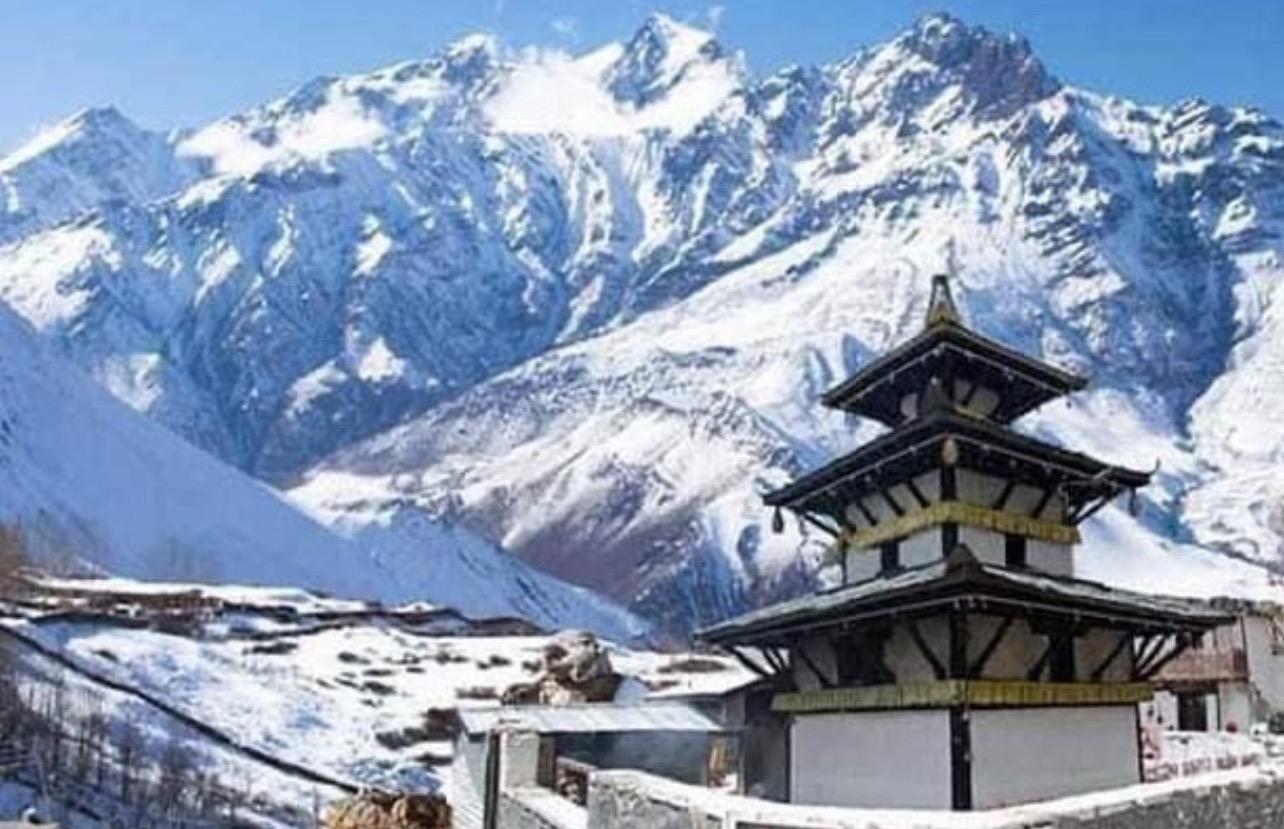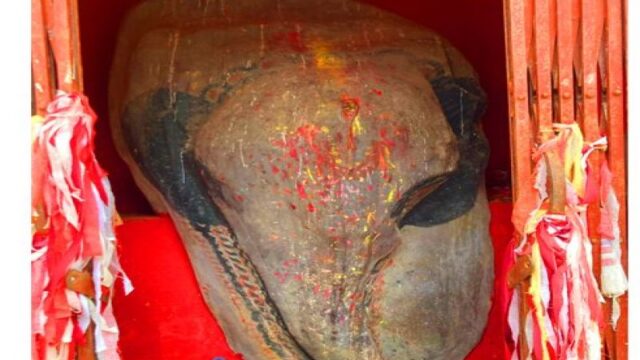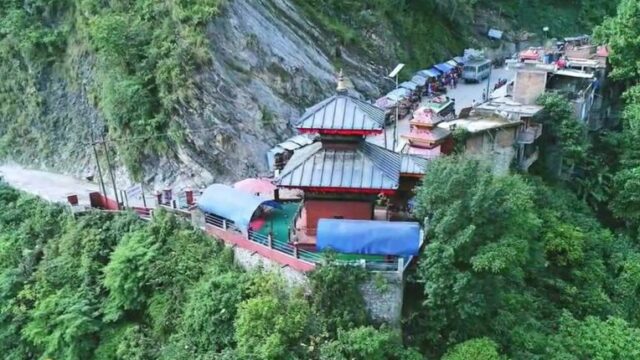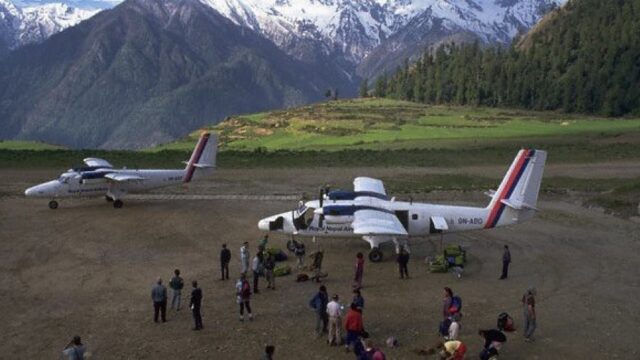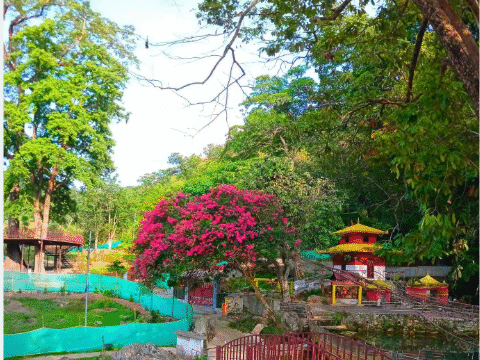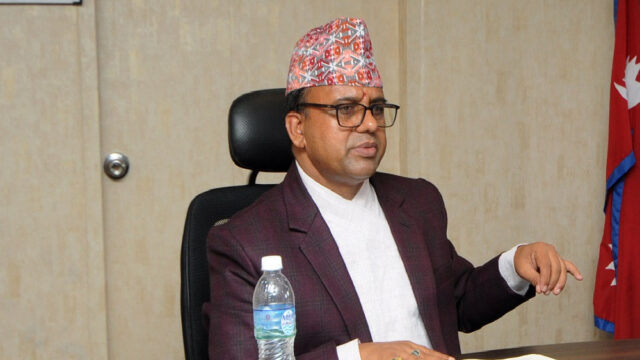Free medical treatment has been arranged for pilgrims suffering from altitude sickness at Muktinath Temple, a sacred religious site shared by both Hindus and Buddhists. The facility is provided with the support of the Provincial Hospital in Jomsom and Waragung Muktikshetra Rural Municipality.
Situated at an altitude of about 3,800 meters above sea level in Mustang, many pilgrims experience altitude-related illnesses when visiting the temple. To provide quick and emergency first aid services to those affected, a High Altitude Treatment Center has been set up in the Muktinath temple premises, according to Khagendra Bohora, the rural municipality’s health coordinator.
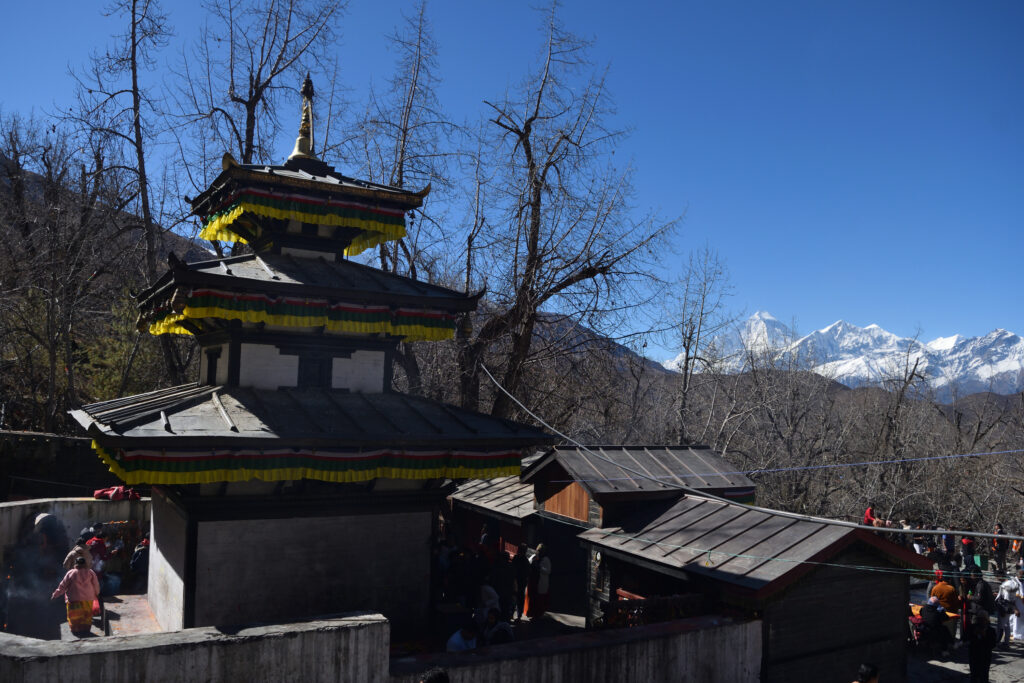
The Provincial Hospital has supplied personnel and oxygen, while the rural municipality has contributed in terms of management and medicines in free. The hospital has deployed two health assistants on contract at the center and ensured oxygen supply as needed.
Health assistants Saroj Ghartimagar and Bikash Thakur are stationed at the center, providing round-the-clock care. The facility is equipped with three beds and three oxygen cylinders, according to Ghartimagar. Two beds and oxygen cylinders are placed slightly away from the temple, while one bed and cylinder are kept close to the temple premises for immediate care.
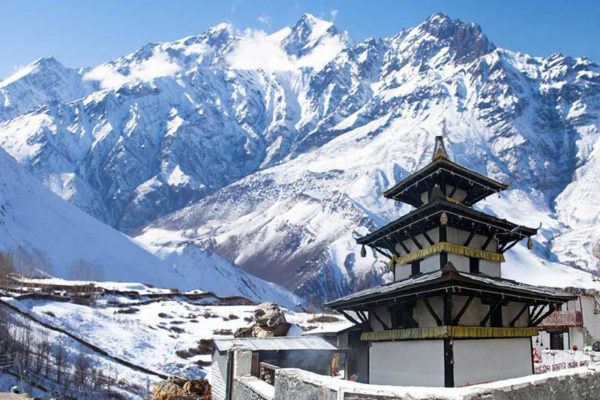
Since the establishment of the center, over 2,000 people have received treatment, with 179 patients treated in the month of Chaitra (March–April) alone, said Ghartimagar. However, due to the limited space of the current treatment room, treating patients can be challenging. There is a need for a better-equipped high-altitude infrastructure facility near the temple premises.
Patients who need further treatment after receiving free first aid are referred to the Provincial Hospital in Jomsom, said health assistant Thakur. According to him, they have treated altitude sickness in elderly pilgrims aged between 45 to 94.
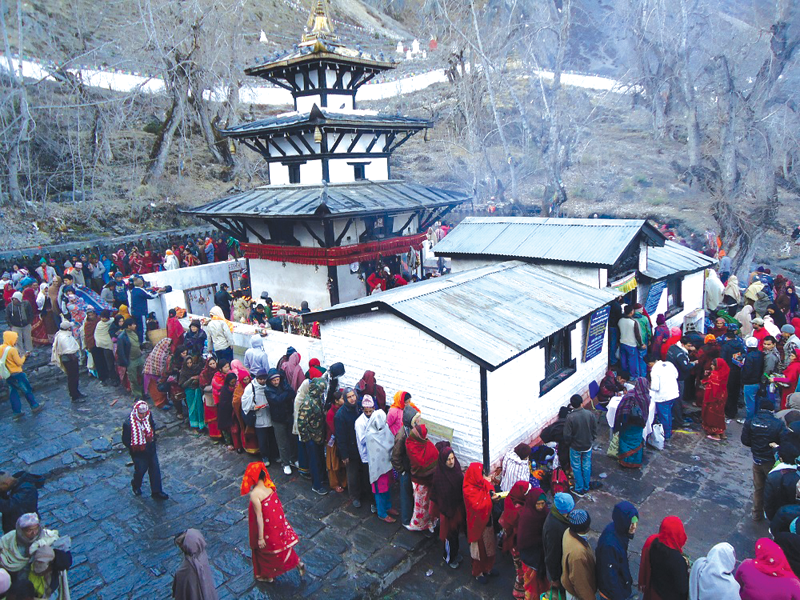
Pilgrims who ascend to high altitudes like Muktinath without proper rest or acclimatization are more likely to suffer from altitude sickness. The elderly, physically weak individuals, and those with chronic illnesses are especially vulnerable. Altitude sickness, which results from low oxygen levels at high elevations, manifests with symptoms such as vomiting, dizziness, headaches, breathing difficulty, fatigue, and lethargy.
How a pilgrim is affected depends on their route and place of origin. Indian tourists, who typically travel from lower elevations, are often more prone to altitude sickness. Local people also report that ritual practices, such as showering under all 108 water spouts, bathing in cold ponds, and temple visits on an empty stomach, can disrupt the body’s temperature regulation and increase the risk of sickness.

The District Police Office has launched an awareness campaign for religious tourists to educate them about altitude sickness. Under the campaign titled “One Minute with Drivers, Two Minutes with Passengers,” officers distribute pamphlets, brochures, and flyers to raise awareness about the condition.
To prevent altitude sickness among tourists visiting Mustang, an information hoarding board has been placed at Ghasa, a border area between Myagdi and Mustang districts. Security personnel stationed there also inform pilgrims about the risks. According to Police Inspector Bishal Adhikari, more than two dozen pilgrims die annually from altitude sickness in Mustang, most of whom are Indian tourists.
